- Home
- Rosanne Hawke
Zenna Dare Page 4
Zenna Dare Read online
Page 4
‘A secret room?’ he asks and I show him. Not that we can see anything — I forgot the torch. Caleb has just the right amount of wonder in his tone. He whistles. ‘Cool.’
I can’t imagine too many guys from Cedar Rise looking even remotely interested, let alone giving the attention Caleb’s focusing on the hidden room. And then the box. We drag it out of my secret spot, not secret anymore, but I think it’s worth it. He runs his hands over the roof. Just like I did. Yet why should he? At least I know the box is possibly something to do with my family. It’s like he can read my mind.
‘Your ancestor left this here?’
‘I don’t know. I’m not sure how to open it without wrecking it.’ I just hope it’s not something like a pinyata or ceramic money box: to get the money out, you have to trash it, never any use again. Caleb’s found the bits that move. He moves the wheel too. I watch him without breathing but I needn’t have worried — he doesn’t force it when it catches.
‘There’s a guy I’ve met at the camel races.’ Camel races? I’m trying to look interested, but I’m restless, waiting to find out the connection between boxes and camels. Caleb glances up at me; he’s still touching the box like it’s a nervous horse and he’s trying to discover what’s hurting inside. ‘Comes every year. He’s an Indian hawker. Once he had a box with a trick opening.’ Of course.
‘He showed me one day. He kept his smokes in it. Probably a bit more besides.’ Caleb grins again, then he concentrates. ‘He used to slide one bit, then another came down and then it clicked open.’
I’m holding my breath again and it’s not only because of the box. My heart is spinning just watching Caleb’s hands. His fingers are long, brown, light underneath, pressing here, tugging a little there. Gentle. Paintbrushes, camels, what else has he touched to give that impression he’s caressing, drawing secrets out of a box?
All of a sudden the wall under the house slides across, and under the waterwheel I can see something. ‘There’s a drawer. With a white knob.’
‘Give it a pull.’ Caleb leans back a bit as I tug. It’s cool, smooth, ceramic. It doesn’t move. Caleb’s trying the roof, the wall again. That’s when I think of the waterwheel.
‘The wheel, Caleb. Try the wheel.’ We reach out together, my hand brushes his, and he pulls back, reluctantly. He remembers it’s my box. I turn the wheel just as we had before. Before it caught. Now it turns all the way and I watch astounded as the drawer slides out, jerking, with a weird clicking sound. Just like clockwork. Caleb leans over to see what’s inside.
‘A key.’ My voice is little more than a whisper. It’s made of iron, almost as big as the front door key. I pick it up. Heavy, too. It reaches all the way from my thumb to my little finger. ‘What’s it for?’
‘Another secret room?’
I turn excited eyes onto Caleb. ‘You think so?’ But he shakes his head.
‘We haven’t finished with the box yet, Jenefer.’
‘Okay, push the drawer in.’
Caleb turns the wheel this time and the drawer disappears with more clicks, like a sci-fi machine with a mind of its own. He tries sliding the wall back into place, but nothing spectacular happens. It’s when he’s pushing the wall the other way that I notice the gap in the wood. ‘The wall’s in two parts. Look. Just move one.’ We keep the part still that’s hiding the drawer and move the one on the left. As soon as it’s slid from under the door, the door drops down with a clatter.
‘There’s your secret room, Jenefer.’ I bend down and underneath the eaves is a keyhole. Just the right size. I don’t say anything; just put the key in, turn it to the right, once, then again, and it clicks. I glance at Caleb. He’s looking uncomfortable. Can’t think why. I lift up the roof, and lean it back. The hinges are almost black, curly and beautiful. Then I look inside. I’d die if there was nothing at all. But there is. A packet of some sort, a small leather case, papers. I hesitate, not daring to touch them. Then Caleb stands up, backs away a step.
‘This is something you need to do by yourself. If it’s to do with your family, then it’s special, stuff you need to find out. My mother would call it your dreaming.’
He says all this so sincerely that my eyes feel hot and prickly. He’s right, I do want to look at it by myself; I’m just so touched that he understands. I shut my door and walk him up the stairs. I want to thank him for his help but it’s been more than that. We’ve shared something I can’t put a name to. I don’t know what to do; what to say that won’t sound ordinary. In the end, on the verandah, Caleb just flashes me his wide smile. ‘See you tomorrow,’ I think he says, but it’s the smile I remember, like he knows everything that’s in my head and he’s pleased about it.
The house is quiet. No more knocking. No more tapping. The kids are in bed; this is the best time — not just for reading or writing poetry and all the other things I do when I’m supposed to be writing essays — but for looking in an ancient box that has reached out to me over two centuries. That sounds so Emily Brontë, I know, but there’s no other way to describe how I feel about this. Never before did I think I’d be affected by something from the past. I mean I love history, but not our own past. Great-aunt Dorie and even Dad were always going on about family history and I never listened; it sounded so boring. No secret affairs or duels at dawn.
Now I wish I’d paid attention. None of these names mean what they should. I have a photo-like card in my hand: Miss Zenna Dare. Who was Zenna Dare? I’ve never heard of her. She looks important, done up to the gills with feathers on her furry hat. Lace all over her dress. She’s smiling, which looks odd for those times. No one used to smile in those old photos. Why is she? She doesn’t seem much older than me.
Then there’s this one: Gweniver Rundle. Unsmiling, proper. She has to be a relative. There was a Gweniver Tremayne; I can remember Dad mentioning her, at least. Think I was named after her. Our names mean the same. His great-gran, maybe? She looks familiar — not the family likeness thing — I’ve seen someone like her recently. There are more photos. They look like miniature paintings. Some from someone initialled ‘R’ to this Zenna Dare. I turn over a picture, black and white, colour lightly painted on, of a boat in the middle of a lake.
My dear Zenna, Why did you not come? I waited till 7.50 p.m. Will be at the Tea Gardens Sunday at 7 p.m. prompt. Please do not leave it like this. R.
The writing is hard to read, though I think I’ve got it right. This must have been sent in an envelope. Then I see one, an envelope addressed to Gweniver Rundle, Fore Street, Camborne, Cornwall. Is this the one? I can’t find any addressed to Zenna Dare.
I put all the pictures in the envelope and open the package next. It’s a white dress, lace round the collar, and layers of it all the way down to the V waist. What sort of person wore clothes like this? I’m afraid to unfold it totally for fear it disintegrates into a puff of nothing, so I smell it instead. It’s a mixture of moth balls and some perfume I can’t exactly define, a fragrance of lavender. Old English gardens. My imagination is on a rampage: I can almost see Gweniver in this dress, what she’d look like, her hair half up on her head
and half in a long dark ringlet on each side held with bows. Where would she be? In a garden? By the sea? What was Camborne like? And Cornwall? A land of moors and wild coasts?
There’s more than a dress: a playbill announcing a ball and concert with all the players listed, the paper almost brown. A Miss Dare is one of them. Then there’s the writing case filled with letters and papers. The leather is slightly ripped at the back and one of the tiny brass screws is missing from the hinge. All the papers out of order too; some with dates, some not. So weird, the paper looks like it’s been screwed up and smoothed out again; some ripped-up pieces.
Too hard to know what to examine first, and it’s late. So I lay the things out reverently in the box: the dress first, the leather case next; the photos on top. I sit here staring a while longer. I
know there’s something happening. I wish I had a red rosebud to lay on the photos. But since I don’t, I close the lid, lock it, push the door up and slide the wall over. It’s an effort by myself; so easy when Caleb was here. I hide the key back in the drawer under the water wheel, close the secret bookcase and slip into bed.
It’s not until I’m too far asleep to get out again that I realise what I noticed about the photo of Gweniver. If she’d been smiling, and had a hat on, she would have looked just like the picture of Zenna Dare.
I have a go at Dad at breakfast. Even Steffi and the kids are there but I don’t let it stop me. ‘Why didn’t you tell me more about our family? Did they all come from Cornwall?’
He looks up. ‘I’m sure I would have told you that, Jenefer.’
‘Well, I don’t think you did.’
Dad just sighs. To be fair, he may have told us. Maybe I hadn’t been interested, but I sure as hell am now. ‘So tell me about Cornwall. I thought you said our family was English.’
He grins at this, toast suspended between his plate and mouth. ‘There might be something to be said for genetic memory. That’s spoken by a true Cornish woman, if ever I’ve heard one.’
What on earth is he raving on about? He stops grinning when he sees the frown on my face.
‘Jenefer, in reality Cornwall is a county of England, but ethnically, the Cornish have always set themselves apart. You see, they were Celts — there before the English came …’
Incredible. The English were invading even then? Wait until I tell Caleb.
‘… now the Cornish are officially recognised as a national minority group.’
‘How come you’ve never said?’ I haven’t heard him talk about this, I’m sure of it.
‘I didn’t think you’d be interested. Aunt Dorie knows more. She belongs to a Cornish Association where they keep up with what’s happening over there.’
‘So which hostel is Aunt Dorie in?’
‘In the Retirement Village in Gawler East. Look, if there’s something you want to know, I might be able to help.’ Then he smiles. ‘It’s the house, isn’t it? It’s so old, it brings the past alive. It’s amazing to think our ancestors actually lived and walked in here, spoke across this table. Thanks for the porridge, Mrs Tremayne. I’ll be back in after I’ve fixed the wheel on the dray. Bet they made pasties for lunch.’
Yeah, we think this is old. Caleb’s people have been around for 60,000 years. Hamilton’s spreading Vegemite even more quietly than usual and Kate’s getting interested now. She pipes up, ‘Do you know anything about them? Our ancestors?’
‘Not much about the original ones, the ones who must have come out and built the house. They were mining people, from Cornwall. All I heard was they lived here in Kapunda, had a cricket team of kids.’
‘Is it all written down somewhere? Is it? I’d like to read the story.’ Kate again. But she’s right. I’d like to read it too. Hamilton’s watching, his toast forgotten. Interesting. Hamilton may be quiet but he always eats. Like Sher Khan.
‘As far as I know most of the immigrants of those times tried to put their old life behind them.’
‘Why did they do that?’
‘They knew they’d never return to their homeland again, and to help them adjust and not go mad, I suppose, they didn’t teach their kids about it. Just said South Australia was their home now and got on with it.’ Sounds very British stiff upper lip. Wonder if they all felt like that?
‘Do you know where in Cornwall?’ (Checking what I read last night on the back of the envelope)
‘Aunt Dorie always said it was Camborne. That was a mining place too and when they started to realise there was a good life over here with copper found in Kapunda, they emigrated.’
I’m starting to feel weird, as though I have no right to a place of my own any more. So I’m of Cornish descent — it’s nice to know. But I’m beginning to wonder if Caleb’s right about a lot of things and where does that leave me? This isn’t really our ancestors’ land this house is built on. It could be Caleb’s ancestors’ for all I know. And if what he’s saying is anything to go by, I bet they never got paid for it.
‘Why emigrate? Did they ever think their descendants might have liked to stay on their own land?’
‘That was just it. They never had land in Cornwall. They’d never get on in life back there. The rich landlords owned it all. The average person made a very small living out of the mines or the sea. Think about how small Cornwall is — it’s only the size of Kangaroo Island.’ That tiny? It keeps me quiet for a while.
‘Jenefer, your great-grandparents were most probably thinking of you three kids when they came.’ Hamilton’s eyes grow wider and I don’t have time to cut in to explain. ‘They left everything — family, friends, what they would have called a normal way of life, braved a five-month voyage on a crowded wooden ship that we wouldn’t take out in the Gulf — all so their descendants could have the opportunities you have today.’
Guess I’m meant to feel proud about something here, but all I can think about is Caleb, and the box. How does it all fit together? I still want to keep the box a secret for a while, especially since Kate’s here and she’s like a rabbit colony, all ears, but I have to ask the next question. ‘Have you heard of a Zenna Dare?’
Dad shakes his head. ‘No. Someone you’re doing in History?’
Careful, Kate’s watching me; she’s so sharp. ‘Just heard the name somewhere, that’s all.’
It’s not until after school and I’m with Caleb that I try to work out some of the confusion. He seems to have a fairly good grip on what he thinks about life and his place in it.
‘I have to go to work later so I’ve got the ute. Want a lift?’ Who’d say no? Why did I ever rave about blue eyes? When Caleb’s brown eyes go all warm, it feels like they’re touching me and I get this urge to jump right into them. But it’s the ute I pull myself into and I start straight in about the box.
‘It’s exciting in one way — I want to find out everything. I mean, it feels good to know something about myself that I didn’t know before, because this is about me, isn’t it? Not just my great-grandparents or something.’ Caleb nods. Then I say it, ‘I think I would have been more over the moon a week ago, if I had found the box then.’
Caleb looks at me sharply; even slows down. ‘Why’s that?’
I find it hard to put into words what’s been bothering me for days. ‘I feel bad now that they came at all. Maybe I should have been born in Cornwall. People like you could have kept their land and life intact.’
Caleb’s shaking his head; I think he mutters a word under his breath that I’m not meant to hear. Then he says something really weird. ‘Guilt is not a good basis for a relationship.’ Guilt? Relationship. Whose relationship?
‘What do you mean?’
‘I mean, you’re sorry about it. That means you want to understand. It’s enough.’ He’s looking at me again. ‘There is room for both of us in Kapunda, you know.’ He’s grinning now as he says Kapunda and I’m not sure if I’m having the mickey taken out of me or not.
‘Look, let’s stop at the reserve awhile. I’ll tell you a story.’
We’re near the duck pond and he pulls over. I find out the duck pond is really the Davidson Reserve; used to be a dam and a water stop for bullock drays. It’s just as peaceful as when I brought the kids last week. We sit out on the decking, me trailing my fingers in the water, while Caleb tells his story.
‘There was once this little girl, five years old, happy, playing with her brothers and sisters.’ I grin; he sounds so cute, but my smile soon fades. ‘One day a white man came. He chose her and her brother for a special life — to learn the white man’s ways. They had the palest skin of that whole mob, you see. Their mum pleaded with him not to take them — she would teach them all she knew and love them more than anyone else ever could, because they we
re her own, but the white man didn’t understand her talk. He thought she didn’t have a brain, that she’d soon get over it, or have some more to take their place.
‘The little girl was taken to a special school, like a hostel. She was taught lots of things, especially how to clean houses she’d never lived in, and wash clothes she’d never worn. Whenever she drew pictures, ones that she knew were special and reminded her of the stories her mum told, she was smacked for wasting time scribbling. Finally she forgot almost everything — where she came from, even her name. She tried to keep track of where her brother had gone, but it wasn’t until she was grown that she saw him again.
‘When she was fourteen, she ran away. She didn’t know who she was. Her name was Normie now, but it didn’t sit right. She still remembered a fire at night and stories and cuddles and the vague warmth of special times. She couldn’t find that anywhere. She got into trouble, but no one helped. She couldn’t make anyone understand that she just wanted a space somewhere to call her own, one that was meant to be hers. One night she tried to kill herself — she was homeless by then. The weird thing is, it was a Salvation Army officer who found her, in time. Took her home. White do-gooders took her away in the first place — yet another gave her back her life. This one understood. He got her in touch with a Nunga group who helped her start tracing her roots. She’s been doing that ever since.’
‘Your mum?’ I still ask even though I know.
He nods. ‘She’s still got a pile of baggage from what happened, but every new bit she finds out, she relays on to me, so I’ll know who I am. When I tell my kids, they’ll know who they are too. They won’t have to be like so many of us who have no life, no self-confidence, putting up with people who don’t understand why we’re like we are.’
I can feel the passion in his tone and it makes my eyes water. Caleb doesn’t strike me as having low self-esteem, so I guess his mum’s been doing a good job of it.
‘And your uncle? She found him?’

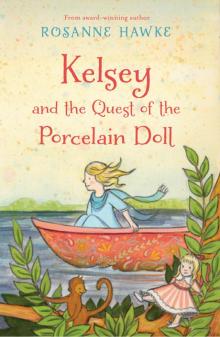 Kelsey and the Quest of the Porcelain Doll
Kelsey and the Quest of the Porcelain Doll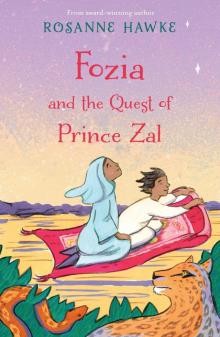 Fozia and the Quest of Prince Zal
Fozia and the Quest of Prince Zal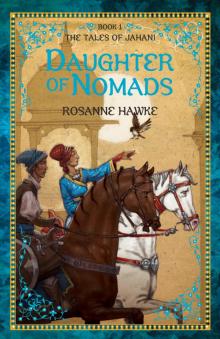 Daughter of Nomads
Daughter of Nomads The Truth About Peacock Blue
The Truth About Peacock Blue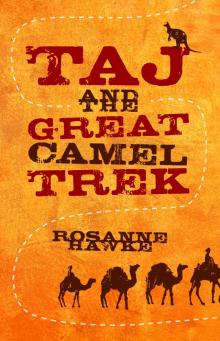 Taj and the Great Camel Trek
Taj and the Great Camel Trek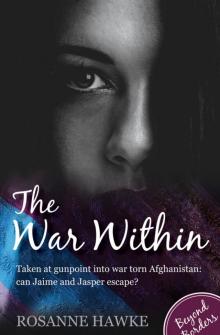 The War Within
The War Within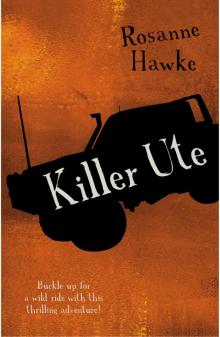 Killer Ute
Killer Ute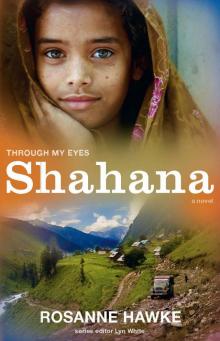 Shahana
Shahana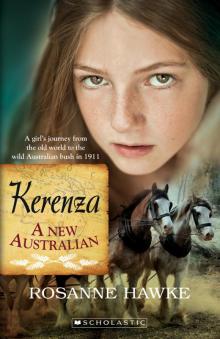 Kerenza: A New Australian
Kerenza: A New Australian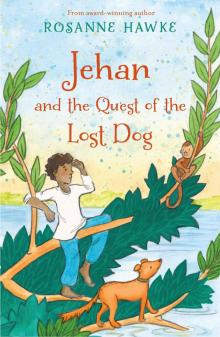 Jehan and the Quest of the Lost Dog
Jehan and the Quest of the Lost Dog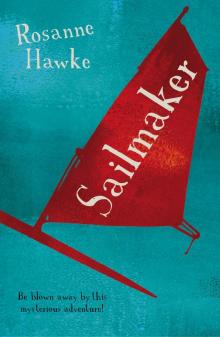 Sailmaker
Sailmaker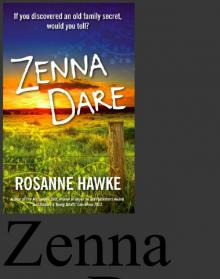 Zenna Dare
Zenna Dare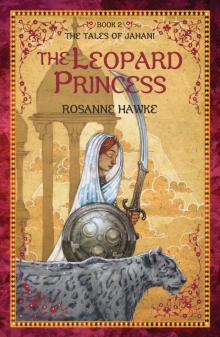 The Leopard Princess
The Leopard Princess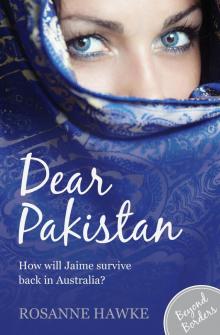 Dear Pakistan
Dear Pakistan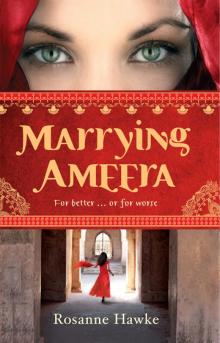 Marrying Ameera
Marrying Ameera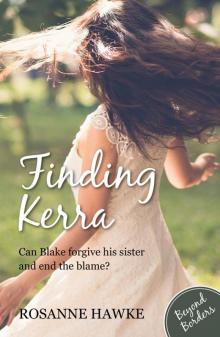 Finding Kerra
Finding Kerra Spirit of a Mountain Wolf
Spirit of a Mountain Wolf